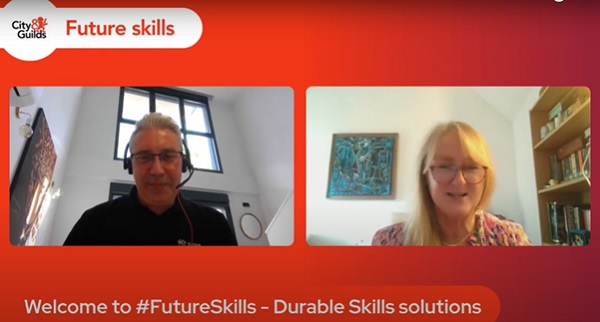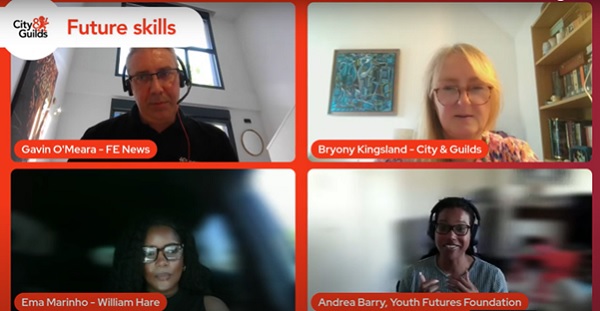City & Guilds wraps up Future Skills livestream with a bold call for change: Focus on Durable Skills
Let’s talk about something that doesn’t get nearly enough attention: thousands of young people across the UK are out of work or education, not because they lack talent but because the system isn’t built to support them.
03 June 2025
In the final episode of our Future Skills livestream series, City & Guilds, in partnership with FE News, delivered more than just a conversation about the future of work. It sounded a wake-up call: the UK must urgently rethink how it prepares young people for lifelong success, starting with a renewed focus on durable skills.
Hosted by FE News’ Gavin O'Meara and City & Guilds’ Bryony Kingsland, the session explored the growing importance of these transferable, long-lasting skills and why so many young people are being left behind by a system that fails to equip them for real-world success.
Drawing on insights from City & Guilds’ latest report, Making Skills Work: The Path to Solving the Productivity Crisis, the livestream featured expert voices including Ema Marinho of William Hare and Andrea Barry of the Youth Futures Foundation. Their message was clear: solving the UK’s productivity crisis isn’t just about more technical training. It’s about empowering young people with essential skills like communication, problem-solving, and resilience, capabilities that remain valuable no matter how industries shift.

Young people aren’t broken. The system is.
A central theme of the discussion was the rising number of young people who are not in education, employment, or training and the need to challenge harmful stereotypes about why. The panel challenged the idea that young people lack ambition. The real issue is a lack of guidance and meaningful support.
“Young people say things like, ‘I don’t even know how to talk to an employer,’” said Andrea. “They’re not being taught how to navigate the world of work.”
The irony? Many already have core employability skills, they just don’t recognise them. Writing a professional email, asking for work experience, or confidently introducing yourself at a careers fair are all valuable workplace behaviours that often go unacknowledged.
Ema brought this to life with a great example: “A third of our apprentices come from school visits. They chase us down in the car park. They want it. But someone has to show them how.”
Involve parents - they’re key career influencers
Another key takeaway: if we want to truly empower young people, we need to start by educating parents.
“We absolutely need to expand how we deliver career advice to parents,” said Ema. “Young people, especially in the early stages, rely heavily on their parents for guidance. But outdated perceptions still linger. Too many people think apprenticeships are for those who aren’t academic. That couldn’t be further from the truth.”
Today’s apprenticeships can lead to degrees and high-level careers. That’s why William Hare now attends parents’ evenings to help parents better understand the full range of opportunities. When parents are well-informed, young people are more confident in choosing paths that align with their strengths and ambitions.

Mentorship works - but it has to be done right
The conversation also pushed back against the unrealistic expectation that young people should arrive “oven-ready” for the workplace from day one.
At William Hare, every apprentice receives two years of mentorship but building meaningful, cross-generational relationships takes intentional effort. “We’ve had 16-year-olds paired with mentors in their 50s,” said Ema. “Bridging that gap requires real training.”
She pointed to international models where mentor certification is mandatory, an approach the UK could seriously consider to strengthen support for young talent.
SMEs are eager, but under-supported
The livestream also spotlighted the challenges facing small and medium-sized enterprises (SMEs), which often lack the resources, support, and infrastructure to run effective training and apprenticeship programmes.
“Regional levy-sharing schemes are helping,” the panel noted, “but access is patchy and inconsistent across the UK.” Their message to government was clear: more must be done to create a level playing field and make the system work for all employers, regardless of size or location.
The big picture: it’s a system, not just a skills problem
The message was clear: this isn’t just a skills gap, it’s a systemic failure. Creating real opportunities for young people demands coordinated action across education, industry, parents, and government. It’s a complex challenge, but the potential rewards for individuals, employers, and the economy are too great to ignore.
“We’re not saying it’s easy,” said Bryony. “But doing nothing? That’s the real risk.”
Watch the full livestream and explore solutions around durable skills